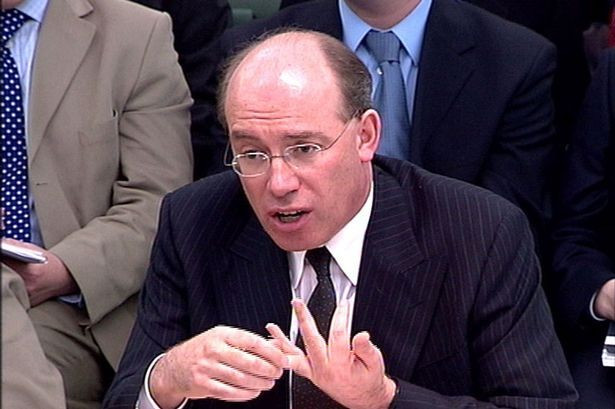Royally Shafted: Bullying James Crosby from His Knighthood is Unfair and Hypocritical

I've no idea whether the "disgraced" former CEO of HBOS earned his Knighthood in the first place - an honour conferred on Robert Mugabe and Nicolae Ceausescu, it's worth remembering - but I'm utterly convinced he doesn't deserve the way in which that metaphorical sword is being used to hack away pounds of his flesh in order to satisfy a nation's misguided sense of entitled vengeance.
Crosby screwed up. He ran a bank. That bank made money. Then he left. Then it lost money. Lots of it.
He hired some less-than-able colleagues (to put it mildly) and fired some others who appear (in hindsight at least) to have wanted to change things for the better.
In no way, shape or form does the pathetic '20/20 vision' of the Parliamentary Commission on Banking Standards' "damning" report (oh, how the hacks loved the colourful prose that bashed the bankers they so envy and despise in equal measure) into the "brash culture" of a failed bank five years after it was swallowed into the crevasse of a once-in-a-lifetime financial crisis that toppled firms many times its size all over the world.
And seven years after the man not only left the bank in the first place, but left it to run the country's top banking watchdog and personally advise a future prime minister on how best to police and regulate financial institutions. A prime minister, it's worth remembering, who is widely regarded (by his allies at least, many of whom sit on the PCBS committee) for single-handedly orchestrating the rescue of the very financial system that Crosby was advising him on.
The PCBS is a joke. Its conclusions are deeply flawed and steeped in bias and focus, all-too-typically on isolating individuals for blame rather than offering prescriptive suggestions for meaningful change.
Citing examples of police work that would embarrass Inspector Blake from On the Buses, the PCBS grandees excoriate HBOS's aggressive culture (using figures between 2001 and 2004) and "self-delusion" (using a letter written in 2008). It tabulates loan impairments made years after Crosby left. It expresses horror at the "rapid" growth of a loan book that only outpaced deposits by 5 percent at its fastest multi-year pace and breezes past with unconscionably arrogant ease the global financial market turmoil which locked the wholesale funding markets upon which HBOS relied.
And in Crosby the panel had its perfect foil: an Oxford-educated, establishment figure with millions in the bank, an incredibly generous pension and the temerity to have challenged its idiotic and ill-informed accusations when sat before their kangaroo court.
The opening salvo of its report focuses on the fact that the now-defunct (and for good reason) Financial Services Authority deemed HBOS "an accident waiting to happen" in 2004 - two years before Crosby stepped down.
"Neither the FSA nor HBOS followed through on the implications of this characterisation," the sophomoric prose intones.
Sir Callum McCarthy - so honoured in 2005 - was FSA chairman when this seemingly smoking gun was revealed.
But guess who found themselves on the business end of the Knighting Sword as it was thrust into his chest as part of a public execution?
That's right, the rich guy.
To paraphrase Martin Sheen, Captain Willard in "Apocalypse Now": charging Crosby with recklessness in the banking industry prior to 2008 is like handing out speeding tickets at the Indy 500.
Few complained at the billion-plus pounds it paid to the Treasury each and every year or the hundreds of millions more its 50,000-plus employees contributed in income taxes and National Insurance. The 200,000 or so new British homeowners each year didn't appear terribly concerned by the "brash" HBOS culture and nobody cared too much when Crosby eased into public life at the FSA and was given the ear to Gordon Brown shortly afterwards.
Of course, all this was before the crash - a crash we've demanded everyone take responsibility for apart from ourselves.
Crosby made mistakes. He didn't commit fraud.
Bullying him from his Knighthood - and gleefully dancing on the ashes of his dignity in the town square - is an unsettling spectacle in a country that has mixed emotions on the idea of personal financial success and wishes to remain at the forefront of globally competitive capitalism.
And for the demand of accountability to come from, inter alia, a former chancellor who's "Lawson Boom" policies led to high-inflation bust and millions of lost jobs is simply ridiculous.
The broadest conclusion I can draw from a crisis in which we all collectively share a portion of the blame is that we seem convinced now that a pound of flesh is worth a lot more than a few ounces of cure.
Crosby - along with Fred Goodwin, Bob Diamond and many others - has given us the former.
Sadly, however, we're more than a bit light on the latter.
© Copyright IBTimes 2025. All rights reserved.




















